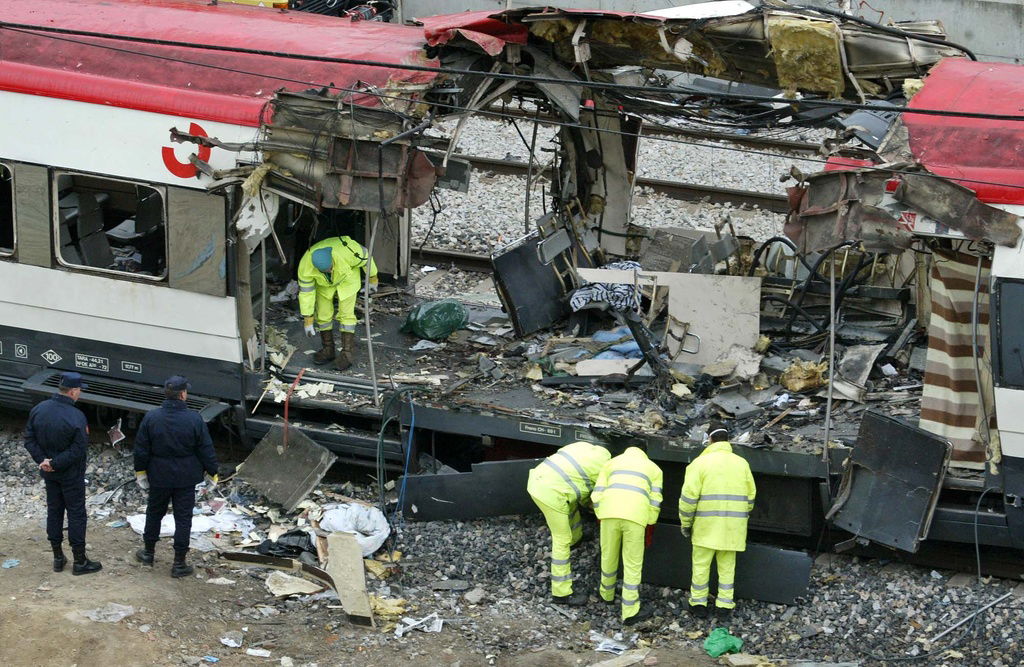
Swiss team up in counterterrorism offensive

Switzerland has stepped up its counterterrorism tactics by joining forces with 28 other countries in the creation of a multinational alliance.
In New York for the recent launch of the Global Counterterrorism Forum (GCTF), Swiss Foreign Minister Micheline Calmy-Rey said she was convinced the Forum would soon prove to be an “indispensable element in the fight against terrorism”.
The United Nations will be a close partner of the Forum and the new group is seen as one way of implementing the UN’s 2006 Global Counterterrorism Strategy (see sidebar) and feeding into other multilateral efforts.
Addressing the Forum launch, Calmy-Rey announced that Switzerland intended to organise a meeting for member states, the UN and other international organisations, to promote better relations all-round and improved coordination of counterterrorism efforts.
The Swiss-convened gathering in November will be the first meeting to focus on the relationship between GCTF members and other multilateral parties involved in counterterrorism. The response to the Swiss proposal has been positive, the Forum said.
“All GCTF members agree on the need to ensure that the efforts of the GCTF and its working groups complement and reinforce those of the UN and other relevant multilateral bodies,” said a statement from the Forum emailed to swissinfo.ch.
Robust bilateral ties
Essentially, the Forum was set up as a place to share experience, expertise and strategies. Led by the United States and Turkey, it aims to “build an international counterterrorism network that is as nimble and adaptive as our adversaries”, US Secretary of State Hillary Clinton told the launch.
This requires “robust bilateral cooperation”, she added.
Two main goals have been set for the Forum. One, to open the first ever multilateral training and research centre focusing on violent extremism. It will be based in Abu Dhabi.
In response to the Arab Spring, the Forum also has a main goal of supporting post-dictatorship countries that are in transition.
To focus activities, five working groups have been created to concentrate on criminal justice, countering violent extremism and terrorist ideologies, and building capacities in the Sahel region in Africa, the Horn of Africa and Southeast Asia.
Each of these working groups will be meeting in the coming months and will be open to non-member countries. (Several countries that are hardest hit by terrorism such as Afghanistan are not among the GCTF members.)
“Important role”
The Forum said Switzerland was expected to be an “active and constructive member”.
“In addition to bringing considerable expertise, for example on rule of law and criminal justice-related issues, to the table, Switzerland is quite active on the capacity-building front and will thus play an important role in the Forum’s different regional capacity-building working groups,” the Forum statement said.
Calmy-Rey said the Forum would complement other existing mechanisms but warned that progress could only be made in a “comprehensive and coordinated manner, based on the rule of law and the respect of human rights”.
The call to uphold human rights was echoed by Switzerland again at the special meeting of the UN Security Council’s Counterterrorism Committee on September 28, held to mark the tenth anniversary of the Security Council’s 1373 resolution – an anti-terrorism measure adopted in the wake of the September 11 terrorist attacks in the US.
Swiss Permanent Representative to the UN Paul Seger applauded the Security Council’s attempts to include human rights protection in its counterterrorism strategy, saying the two were “complementary and mutually reinforcing”.
The ten year anniversary of the Security Council resolution was also a “unique opportunity to take stock” of UN counterterrorism efforts thus far, Seger told the committee.
Here too, Seger reiterated the Swiss push for cooperation and coordination of the various counterterrorism efforts with the UN system.
With this in mind, Switzerland has co-financed a study on the issue by the non-profit Center on Global Counterterrorism Cooperation and plans to come up with ideas to enhance UN performance.
The 30 founding members of the Forum are:
Algeria, Australia, Britain, Canada, China, Colombia, Denmark, Egypt, the European Union, France, Germany, India, Indonesia, Italy, Japan, Jordan, Morocco, The Netherlands, New Zealand, Nigeria, Pakistan, Qatar, Russia, Saudi Arabia, South Africa, Spain, Switzerland, Turkey, the United Arab Emirates and the United States.
The UN Global Counter-Terrorism Strategy was adopted by member states in September 2006.
The strategy and resulting resolution form a “unique global instrument” that aims to enhance national, regional and international efforts to counter terrorism. It was the first time that all member states had agreed to a common strategic approach.
Measure range from countering terrorist threats to better coordinating the UN system’s counterterrorism activities.
(Source: United Nations)
The Swiss foreign ministry coordinates Swiss counterterrorism activities.
Switzerland has ratified all 16 UN universal conventions and protocols on combatting specific forms of terrorism. It has also entered into specific bilateral agreements with individual states and is involved in Europol and Schengen efforts.
The UN General Assembly adopted the Global Counterterrorism Strategy in 2006, and as a contribution to this Switzerland launched the International Process on Global Counterterrorism Cooperation in 2007, in cooperation with four other countries. The process aimed to review contributions of the UN to the fight against terrorism and to find ways to make its institutions more relevant to national counterterrorism strategies.
Switzerland presented the results of that process to the UN in 2008 with 19 proposals, one of which was to create a new UN platform to facilitate talks about counterterrorism coordinators of member states.
(Source: Swiss foreign ministry)

In compliance with the JTI standards
More: SWI swissinfo.ch certified by the Journalism Trust Initiative






























You can find an overview of ongoing debates with our journalists here . Please join us!
If you want to start a conversation about a topic raised in this article or want to report factual errors, email us at english@swissinfo.ch.